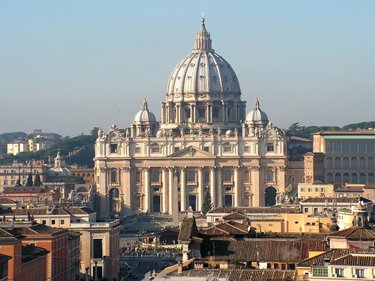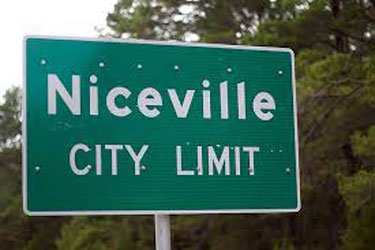Category Archive 'Liberalism'
22 Jul 2020


John Gray notes that, after the collapse of Communism, the Western Liberal Establishment decided it was obligated to follow suit.
The values imposed under communism were internalised by few among those who were compelled to conform to them. Ordinary citizens and many communist functionaries were a bit like Marranos, the Iberian Jews forced to convert to Christianity in mediaeval and early modern times, who secretly practised their true religion for generations or centuries afterwards. Such fortitude requires rich inner resources and an idea of truth as something independent of subjective emotion and social convention. There are not many Marranos in the post-liberal west.
Some have attempted to revive classical liberalism, an anachronistic project that harks back to a time when western values could command a global hegemony. Others have opted for a hyperbolic version of liberalism in which western civilisation is denounced as being a vehicle for global repression.
In this alt-liberal ideology, the central values of classical liberalism — personal autonomy and the rejection of tradition in favour of critical reason — are radicalised and turned against the liberal way of life. A heretical cult, alt-liberalism is what liberalism becomes when it tears up its roots in Jewish and Christian religion. Today it is the ruling ideology in much of the academy and media.
In these conditions one might suspect self-censorship, since anyone expressing seriously heterodox views risks a rupture in their professional life. Yet it would be a mistake to think alt-liberals are mostly cynical conformists. Since practising cynics realise that the views they are publicly promoting are actually false, cynicism presupposes the capacity to recognise truth. In contrast, alt-liberals appear wholly sincere when they denounce the society that privileges and rewards them. Unlike the Marranos, whose public professions concealed another view of the world, alt-liberals conceal nothing. There is nothing in them to conceal. They are expressing the prevailing western orthodoxy, which identifies western civilization as being uniquely malignant.
Of course, civilisational self-hatred is a singularly western conceit. Non-western countries — China, India and Russia, for example— are increasingly asserting themselves as civilisation-states. It is only western countries that denounce the civilisation they once represented. But not everything is as it seems. Even as they condemn it, alt-liberals are affirming the superiority of the West over other civilisations. Not only is the West uniquely destructive. It is only the West — or its most advanced section, the alt-liberal elite — that has the critical capacity to transcend itself. But to become what, exactly? Lying behind these intellectual contortions is an insoluble problem.
RTWT
21 Jul 2019


The New York Times’ derisive response to the 50th Anniversary of America’s triumphant landing on the Moon made the blood of many people boil, but really wasn’t anything new.
The liberalism of the American Establishment moved significantly in the direction of the rancid radical Left in the six years between the death of JFK and the Apollo space crew’s moon landing. Even as far back in 1969, as Steven Hayward notes, the liberals were turning against the Space Program.
[W]e shouldn’t underestimate how dramatically liberals turned against the Apollo project at the moment of its triumph—a sign of the larger collapse of liberalism in the 1960s. The moon landing had been set out as a lofty goal by the liberals’ hero, John F. Kennedy, and the moon landing was an occasion of national pride and celebration for most Americans. Here, amidst the rubble and gloom of the 1960s, was something that had gone splendidly right. Many leading liberals, however, could only sniff that while the moon landing was undeniably impressive, the money for the moon landing would have been better spent on social problems on Earth. The popular cliché of the time went: “Any nation that can land a man on the moon can [fill in the blank].†(The total cost of the decade-long moon landing project was less than three months’ worth of federal spending for social programs in 1969.)
Senate Majority Leader Mike Mansfield said that “The needs of the people on earth, and especially in this country, should have priority. When we solve these problems, we can consider space efforts.†Even the brother of the man who issued the call to go to the moon, Sen. Ted Kennedy, expressed weariness with the space program: “I think after [the moon landing] the space program ought to fit into our other national priorities.â€
This may have been the moment when liberalism certified that it had become a crabbed and negative force in American life. It has never recovered.
RTWT
21 May 2019


Brett Stevens:
We have given in to mundane, socially acceptable evil that we now accept as good, and that starts with individualism/equality, which is the backdoor into the human psyche. All of the stuff that the far-Right detests — diversity, decay in behavior, shattering of the family, international finance, Idiocracy, mass/pop culture, ethnic crime — has its origins in equality or being used to justify equality as a workable program. We target the root, where everyone else is swatting at flies and missing the big point. …
The core of politics for me is realizing that most people mean well, but do not understand how their actions translate to reality. They see a thing, want that thing, and desire that some all-powerful force will make it so, but that is religious thinking, not leadership. Democracy means that whoever sells the most pleasurable lie wins, and as a result society has drifted Leftward. At the close of the twentieth century, however, it had become clear that the liberal West was dying just as the Communist East had done.”
and
CLS:
Successful civilizations lead to weak populations. Weak populations know they are inferior. They know this instinctively. They have no purpose for existing. They don’t articulate this directly. They act it out indirectly by throwing themselves into acts of symbolic importance because they are not capable of acts of importance.
20 Dec 2018


Taneer Greer, in the American Conservative, describes some research out of Harvard flying in the face of the conventional contemporary view of the Church of Rome as the enemy of Science, Liberalism, and Civilization, good for nothing but keeping rich cardinals equipped with mistresses and sending original thinkers to the stake.
Why did the West rise above the rest? Over the last two decades, academics and pundits have tried to answer this question. Most begin their search for the birth of the modern world somewhere over the last few centuries: the discovery of the Americas, the invention of the steam engine, perhaps the outbreak of the French Revolution.
Yet the research of two pathbreaking economists suggests that these answers are misplaced. In separate works, they argue that the invention of capitalism and liberalism in Western Europe should be traced to one surprising source: the medieval Catholic Church.
The research program of Jonathan Schultz, an economist currently attached to the Culture, Cognition, and Coevolution research group at Harvard, is built on a simple observation: Western Europeans—and their cultural descendants in places like North America and Australia—think differently from people raised in other cultures. This is not a unique observation. Over the last two decades, psychologists have asked questions like “Do you think most people can be trusted?†and “Is it important to think up ideas and be creative, to do things one’s own way?†They’ve complimented these questionnaires with games cleverly designed to test how willing subjects are to trust strangers, punish rule breakers, break rules themselves, and treat friends and family impartially.
Schultz and his team drew on 20 of these cross-cultural experiments (including several “natural†experiments, such as the likelihood that a diplomat at the U.N. from a given country would call on diplomatic immunity to get out of a parking ticket) to sketch a psychological profile of the Western mind. They found that on average, Westerners are more individualistic, more trusting of strangers and public institutions, more likely to donate anonymously, less concerned with the opinions and judgments of their peers, less likely to cheat or bend rules (especially for the sake of friends and relatives), and far less tolerant of nepotism than those from other parts of the world.
This will come as little surprise to anyone who has lived both in and outside the West. It also won’t shock psychologists, who have even invented an acronym to label this unique psychological type: “W.E.I.R.D.â€â€”Western, Educated, Industrial, Rich, and Developed. But in contrast to past research, which tended to emphasize the gap between Europe and the rest of the globe, Schultz and his team have focused their attention on differences within Europe itself. They have found that WEIRDness is not uniform across Europe. Some European populations are far WEIRDer than others. What explains this variation in WEIRD psychology? Schultz provides a simple answer: the date at which a region first fell under the influence of the Catholic Church. To predict how civic-minded, individualist, and trusting a population is today, you need only check whether a Catholic bishopric had been established there by the 7th century AD.
RTWT
It is obviously true, if you think about it for a moment, that all of us descendants of Northern European peoples owe the gift of literacy and our membership in Western Civilization to the conversion to Christianity of our barbarian pagan ancestors by the Roman Catholic Church.
17 Nov 2018


The dining hall of my personal Hogwarts.
Ross Douthat explained last year why the Harry Potter books struck such a chord in our contemporary meritocratic world.
[I]f you take the Potterverse seriously as an allegory for ours, the most noteworthy divide isn’t between the good multicultural wizards and the bad racist ones. It’s between all the wizards, good and bad, and everybody else — the Muggles.
For the six readers who have never read the Potter books but who have stuck with the column thus far nonetheless: Muggles are non-magical folks, the billions of regular everyday human beings who live and work in blissful ignorance that the wizarding world exists. The only exception comes when one of them marries a wizard or has the genetic luck to give birth to a magic-capable child, in which case they get to watch their offspring ascend to one of the wizarding academies while they experience its raptures and revelations secondhand.
The proper treatment of Muggles, meanwhile, is the great controversy within the wizarding world, where the good guys want them protected, left alone and sometimes studied, while the bad guys want to see them subjugated or enslaved (and all the Muggle-born “mudbloods†purged from the wizarding ranks).
All of this plays as an allegory for racism, up to a point … but only up to a point, because what’s notable is that nobody actually wants to see the mass of Muggles (as opposed to their occasional wizardish offspring) integrated into the wizarding society. Indeed, according to the rules of Rowling’s universe, that seems to be impossible. You’re either born with magic or you aren’t, and if you aren’t there’s really not any obvious place for you in Hogwarts or any other wizarding establishment.
So even from the perspective of the enlightened, progressive wizarding faction, then, Muggles are basically just a vast surplus population that occasionally produces the new blood that wizarding needs to avoid becoming just a society of snobbish old-money inbred Draco Malfoys. And if that were to change, if any old Muggle could suddenly be trained in magic, the whole thrill of Harry Potter’s acceptance at Hogwarts would lose its narrative frisson, its admission-to-the-inner-circle thrill.
Which makes the thrill of becoming a magical initiate in the Potterverse remarkably similar to the thrill of being chosen by the modern meritocracy, plucked from the ordinary ranks of life and ushered into gothic halls and exclusive classrooms, where you will be sorted — though not by a magic hat, admittedly — according to your talents and your just deserts.
I am stealing this magic-and-meritocracy parallel from the pseudonymous blogger Spotted Toad, who wrote a fine post discussing how much the Potter novels and movies trade upon the powerful loyalty that their readers feel, or feel that they should feel, toward their teachers and their schools. But not just any school — not some suburban John Hughes-style high school or generic Podunk U. No, it’s loyalty to a selective school, with an antique pedigree but a modern claim to excellence, an exclusive admissions process but a pleasingly multicultural student body. A school where everybody knows that they belong, because they can do the necessary magic and ordinary Muggles can’t.
Thus the Potterverse, as Toad writes, is about “the legitimacy of authority that comes from schools†— Ivy League schools, elite schools, U.S. News & World Report top 100 schools. And because “contemporary liberalism is the ideology of imperial academia, funneled through media and nonprofits and governmental agencies but responsible ultimately only to itself,†a story about a wizarding academy is the perfect fantasy story for the liberal meritocracy to tell about itself. …
In the Potter novels the selective school is conterminous with wizarding society as a whole (allowing for some elves and goblins to do maintenance and keep the books), and thus the threats to that world’s liberal integrity all come from within the academy’s walls, from Slytherin House and its arrogant aristocrats, who must be constantly confronted in the halls and classrooms of the beloved school itself. Voldemort, the dark lord, has Muggle blood, but he isn’t trying to rally an army of non-magic-wielders to seize Hogwarts’ towers; he’s trying to remake meritocratic — er, magical — institutions in his own dark image. And so the battle for Harvard — er, Hogwarts — is the battle for the world.
Which is basically the premise of a great deal of youthful liberal activism these days — that once the last remnants of Slytherin are eradicated from the leafy quads of Yale or Middlebury, once Draco Malfoy’s frat or final club is closed and the last Death-Eater sympathizers purged from the faculty, then the battle of ideas will have been finally and fully won.
But what house was Boris Johnson in?
RTWT
01 Apr 2018


John Gray is dismayed at the way the politics of identity has replaced Liberalism with intolerant and totalitarian hyper-liberalism.
It would be easy to say that liberalism has now been abandoned. Practices of toleration that used to be seen as essential to freedom are being deconstructed and dismissed as structures of repression, and any ideas or beliefs that stand in the way of this process banned from public discourse. Judged by old-fashioned standards, this is the opposite of what liberals have stood for. But what has happened in higher education is not that liberalism has been supplanted by some other ruling philosÂophy. Instead, a hyper-liberal ideology has developed that aims to purge society of any trace of other views of the world. If a regime of censorship prevails in universities, it is because they have become vehicles for this project. When students from China study in Western countries one of the lessons they learn is that the enforcement of intellectual orthodoxy does not require an authoritarian govÂernment. In institutions that proclaim their commitment to critical inquiry, censorship is most effective when it is self-imposed. A defining feature of tyranny, the policing of opinion is now established practice in societies that believe themselves to be freer than they have ever been.
RTWT
01 Dec 2017


Barton Swaim finds the spectacle of contemporary Liberalism caught publicly embarrassed in self-contradictory moral Absolutes an endless source of entertainment.
Today’s liberal elite do not look backward for their authority—there are no scriptures and no inviolable traditions in modern liberalism. They look to the future. The rules issuing from the modern liberal clerisy are thought to be the latest manifestation of moral progress, to which educated people must adhere if they wish to be thought of as good people. So for instance American liberals can, in the space of a decade or even less, go from believing marriage is a sacred institution between one man and one woman (Hillary Clinton and Barack Obama said they believed this) to holding that it’s a contract between two people who love each other, even if those two people are of the same sex. They can embrace the latter doctrine just as fervently as they did the earlier one.
The real trouble with this system is that the clerisy, in its enthusiasm to keep up with the times, issues new rules that contradict the old rules. The conflicting nature of its demands is not news, but of late those contradictions have become acute and more obvious.
15 Sep 2017


Samuel Biagetti finds an important parallel between the youthful middle-class community of fashion’s preference in furniture and its inner life.
Suppose for the moment that our young couple of today… Jennifer and Jason, are members of the upper middle class, living off their smarts and social connections rather than manual work. They live in the Sun Belt, in some newly gentrifying neighborhood of Queens, or in its equivalent in Montreal or Melbourne. They have college degrees and, even more importantly, college friends, which help to pull them up the slippery slope of middle-class employment. They are part of a scrambled white-collar workforce, drawn from all parts of the country and abroad, a lumpenbourgeoisie squeezing itself into selected wards of a few expensive cities. They follow trends in food, and music, and long-form television. Their politics are probably (but not definitely) liberal.
Let us further entertain the idea that in our time as in Dickens’, life imitates furniture, and that we will learn something about our young couple if we consider where they house their underwear. If we picture Jennifer and Jason’s bedroom, it is not hard to guess what we would see there: a good deal of IKEA. Their IKEA dressers are probably black or white, or maybe covered in a veneer — something light but earthy, such as birch. Beneath the veneer, however, is not a cheaper wood like local poplar, but particle board — a material that would befuddle Dickens and his contemporaries.
Consider more closely where this IKEA dresser and its underlying substance came from. That story begins at a logging camp somewhere in the world — quite possibly in an illegally harvested old-growth forest in Russia or China. (It is impossible to say exactly, since IKEA has torpedoed laws that would require them to disclose their sources.) The loggers in this mystery forest fell trees of various sorts and pass them on to a logging company that might manage scores of camps. The logging company then sells the trees to a sawmill which gathers material from several dozen logging companies and cuts them into boards. Several sawmills in a region then supply the lumber to a larger board-mill that cuts the wood into even smaller pieces. Small suppliers buy the board from several board-mills and transport a portion of it to large suppliers, which in turn gather and pulverize the various materials in a chemical soup and press it into lighter, cheaper chunks. IKEA then buys this “composite material†to cut into the components of a Malm or Hemnes, sorts it into boxes, and distributes it to over 300 stores around the world, leaving the final assembly to the customers. Even a simple desk or dresser contains, by IKEA’s own admission, at least 26 different species of wood from at least 18 different countries — and usually far more. The result is a sleek but crumbly piece of furniture, sure to camouflage into any new apartment. Jennifer and Jason use their dressers every day without a thought as to the work or the materials that made them.
We must not sneer at Jennifer and Jason, many readers are sure to point out, for choosing IKEA. Their incomes, though high in the global scale, are likely to be lower than their parents’ were, and they often have to move in order to climb the employment ladder. It is only reasonable for them to buy something inexpensive, transportable, and replaceable. IKEA fulfills an important niche in the middle-class market — for cheap furniture that still retains a semblance of respectability. The company has exploited this market to become the global empire that Sweden never had, a kind of Viking revenge on the modern age.
Still, there is a good chance that Jennifer and Jason actually like their IKEA dressers, and prefer them to the old oak chest that their grandparents tried to foist on them. Indeed, the extraordinary popularity of IKEA testifies not only to its convenience but to its ability to appeal to the middle-class self-image. Jennifer and Jason are drawn to IKEA because it reflects who they are: they too are modern, movable, and interchangeable, their wants satisfiable in any neighborhood with a food co-op and a coffee shop. More fundamentally, Jennifer and Jason are untraceable, a “composite material†made from numberless scraps and pieces. They have a long catalog of home towns, and their accents are NPR neutral. They can probably rattle off the various nationalities in their family trees — Dutch, Norwegian, Greek, and Jewish, maybe some Venezuelan or Honduran for a little color. From these backgrounds they retain no more than a humorous word or phrase, a recipe, or an Ellis Island anecdote, if that. They grew up amidst a scramble of white-collar professionals and went to college with a scramble of white-collar professionals’ kids. Their values are defined mainly by mass media, their tastes adorably quirky but never straying too far from their peers’, and like the IKEA furniture that they buy in boxes, they too cut themselves into manageable, packaged pieces and market themselves online. They are probably “spiritual but not religious.†They have no pattern or model of life that bears any relation to the past before the internet. For all intents and purposes, they sprang up de novo in the modern city. Whereas the Veneerings’ high fashion covered over an essential vulgarity, Jennifer’s and Jason’s urbane style masks a hollowness.
It may be tempting to call Jennifer and Jason, and the the group of people whom they represent, “cosmopolitans.†( And indeed, IKEA, with its vaguely exotic Swedish names, provides a dash of cosmopolitanism on the cheap.) However, Jennifer and Jason are something newer and more bizarre than cosmopolitans: as Ross Douthat aptly pointed out in the wake of the Trump election, the increasingly insulated college-educated classes of the coastal cities do not grapple with real, substantive differences in beliefs and values, associating instead with cliques of like-minded classmates. …
Conversely, we must also avoid cheap epithets. The word “cosmopolitan†is a double-edged sword – long a shibboleth for worldly sophistication, it has lately turned upon its makers, serving as a political weapon against urban liberals; it is not surprising that a Trump spokesman recently attacked the “cosmopolitan bias†of a journalist who questioned the White House’s immigration policies. There is nothing particularly new or insightful about attacking urbanites tainted by association with the foreign, like the Judean exiles railing against the silken whores of Babylon. Still, as shallow and hackneyed as this rhetorical strategy might be, it packs a populist punch because the very concept of “cosmopolitan†is purely relative: since no one, legally speaking, is a citizen of the world, one can be “cosmopolitan†only in contrast to someone else – a “provincial†in the Victorian terminology, or a “xenophobe†in contemporary talk. In other words, the idea of cosmopolitanism carries an unavoidable subtext of class superiority.
Therefore, to be precise, the class of people of whom I am speaking are “cosmopolitan†neither in the idealized nor in the demonized sense of the word. They neither bridge deep social differences in search of the best in human experience, nor debase themselves with exotic foreign pleasures. Rather, they have no concept of foreignness at all, because they have no native traditions against which to compare. Indeed, the very idea of a life shaped by inherited custom is alien to our young couple. When Jennifer and Jason try to choose a restaurant for dinner, one of them invariably complains, “I don’t want Italian, because I had Italian last night.†It does not occur to them that in Italy, most people have Italian every night. For Jennifer and Jason, cuisines, musical styles, meditative practices, and other long-developed customs are not threads in a comprehensive or enduring way of life, but accessories like cheap sunglasses, to be casually picked up and discarded from day to day. Unmoored, undefined, and unaware of any other way of being, Jennifer and Jason are no one. They are the living equivalents of the particle board that makes up the IKEA dressers and IKEA nightstands next to their IKEA beds. In short, they are IKEA humans.
RTWT
HT: Vanderleun.
29 Nov 2015


Rod Dreher posts a letter from an anonymous (and not entirely grammatical) conservative college professor.
[W]hen people my parents’ age scoff at the whole trans thing and dismiss it as just the cause du jour (remember Darfur? neither do any of the SJWs), I shake my head and tell them they have no idea what’s coming. The project of the Willed Self is a natural outgrowth of Enlightenment thinking. (I share your opinion that Submission is not a great book, but a very important one in terms of exposing the internal contradictions of the Enlightenment.) The whole intellectual movement of the last three centuries has at its core the principle of freeing the willed self from all constraints. The trans movement represents this idea’s apex: if we can free ourselves from basic biology and anatomy, then truly we have become gods. “I am that I am†is no longer confined to Exodus 3; it is the mantra of the willed self freed from all external barriers. There is nothing beyond the subjective, the personal, the therapeutic, because all that matters is how I define my own self, my own existence, and my own gratification. There can be no society or community within this worldview. Patrick Deneen was right in that “After Liberalism†lecture he gave: Enlightenment liberalism has been scary for we [sic] traditional conservatives, but what’s coming next — what’s coming now — is terrifying.
29 Nov 2015


Umair (who is no conservative himself) argues that leftism’s obsession with egalitarianism in its most bizarre manifestations and with regard to the most microscopic grievances has driven the liberal establishment to a kind of madness which distracts it from more real issues and delegitimizes all of its authority.
Every day lately, it seems that the world is going a little bit crazier than the day before. So, like me, you might be forgiveably baffled by the fact that while the planet is melting down, democracy’s broken, the economy’s cratered, the young won’t enjoy careers, retirements, savings, homes, societies are anxious, fractured, angry, the left is furiously obsessed with, willing to battle endlessly over, consumed passionately not with any or all of the above, but by…what to call their love lives. Do you use the right gender pronouns? Are you on board with the latest approved-by-committee terminology? Did you know that according to the internet “romantic†and “sexual†attraction aren’t the same thing? Don’t you know that men can have periods? Hey, is this a safe space? …
I want to advance a simple thesis: perhaps the central reason that liberalism is in historic decline globally is because the left is self-indulging itself into irrelevance.
To overdramatize it, the left is bickering over what to call what goes on between the sheets…while the world is starting to burn. Hence, when you think about it, the latest variant of Leftism isn’t really about politics very much at all. It’s about marketing. Safe spaces in which to have zealous contests for labels, which make up “identitiesâ€, that are ironically just…personal brands…that advertise…one’s narrow, shallow pursuit of pleasure, consumption, artifice. New Leftism is glittering narcissism concerned with the good life as lifestyle, not the difficult, joyous, humble work of living. Which leaves us here: as if shoppers at the mall began screaming at each other over their “lifestyle choices†while a giant hurricane ripped the roof from over their heads.
01 Jul 2015


The Thinking Housewife is revolting against the tyranny of Nice.
J.D. writes, “What is it that they want?â€
It’s shockingly simple: They want to be thought of as NICE. By everyone.
Niceness is their highest value… the coin of the realm. Nice people are nice. Not nice people are mean. And they don’t want mean people to think they’re not nice, either, so it’s a double-bind worldview. They’re trapped in the social empire of nice, and there is no escape.
However, there is a prize: everyone thinks the nice person is nice. Not much more, but certainly nice. No one can say anything bad about the nice person, which isn’t a fully human, fully-alive experience, but it is nice.
They don’t want to be thought of as mean, so they follow the nice trends and celebrate all kinds of nice self-congratulation. It’s a dualistic worldview, brought to them through television, Internet, viral emails, movies, social media, cute JPEGs, et cetera.
The Glowing Box tells them what is nice, and how to think. They imitate, and pass it on.
That’s what they want: to be nice, for others to think of them as nice, for others to be nice to others, and the world to be a nice place. They want to be comfortable. People who create discomfort — by thinking or encouraging others to think — are not nice. Just like their most challenging teachers in their school years, who created a “not nice environment†that demanded the best of them and others… the highest effort, playing on their growth edge. Standing for something beyond the comfort zone of niceness. That wasn’t nice because some people couldn’t get an A because they wouldn’t think or work hard enough to get it, creating despair. That’s not nice. And this view of thinkers — those with higher standards for humanity — continues to this day. Thinkers are mean, caught up in their heads. Unrepentant thinkers are haters. They have no heart.
Fun, huh?
Read the whole thing.
Hat tip to Vanderleun.
04 May 2015


John Steele Gordon, in Commentary, fisks good-and-proper Nicholas Kristof’s canting, holier-than-thou “Inequality is a Choice” NYT editorial.
Is there really something terrible about the rich getting much richer, as long as the less rich are not getting any poorer, and indeed are seeing their standards of living rising over the long term, thanks to such things as Walmart, Amazon, iPhones, GPS, etc.?) …
[Kristof, in the end,] comes up with a list of possible ways to correct what might very well not need correcting, but would definitely put more money into the hands of the political class that Kristof represents (to be used, of course, strictly for the good of the poor and the downtrodden). Among these are: More government vigilance regarding monopolies and competition, strong trade unions, public-sector jobs at the minimum wage for such things as elderly care (has he checked with the unions for their opinion on this?), restrain pay at the highest levels (i.e. maximum-wage legislation), and a personal income tax that tops out at 65 percent.
Is there a single idea in there that post dates FDR, who died 70 years ago in a completely different economic universe? Indeed, most of them antedate the 20th century. Steeply progressive income taxes are straight out of the Communist Manifesto, published in 1848.
So here’s my list of ideas to lower the income inequality between rich and poor. They would actually help everyone except the political class:
Break up government monopolies, such as Medicare, the Veterans Administration, and, most important public school systems. Introducing competition into these areas of the economy is vital to improving them, because competition, and competition alone, produces hard work and innovation. Monopolies—private and governmental—are always fat, dumb, lazy, and devoted to maintaining the monopoly. The shortest route to prosperity for the poor and downtrodden is a good education and the inculcation of good work habits. They don’t get that today and liberals don’t give a damn. (One of the first things President Obama tried to do as president was end the school voucher program in Washington, D.C., as a thank you to the teachers unions, while sending his two daughters to a very expensive, and very good, private school: welcome to modern-day liberalism).
Introduce a flat tax, so that the private jet owners of the world can’t finagle special deals with their congressional pals.
Abolish the corporate income tax. I wrote about the extraordinary benefits of doing this in the Wall Street Journal a few months ago. At least 90 percent of the tax fiddles and crony-capitalism government favors are hidden in the corporate income tax. Get rid of it and 60,000 lobbyists in Washington would need to go out and get wealth-creating jobs. Do you think private jet owners own their private jets personally? Of course not, their corporations own them and get a slew of deductions thereby.
Modern-day liberalism is about talking about helping the poor and downtrodden, while espousing policies that will only help the narrow and ever-more privileged elite of which liberals are the most vocal supporters.
Read the whole thing.
Your are browsing
the Archives of Never Yet Melted in the 'Liberalism' Category.
/div>

Feeds
|















